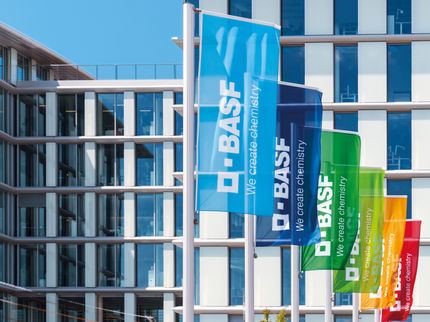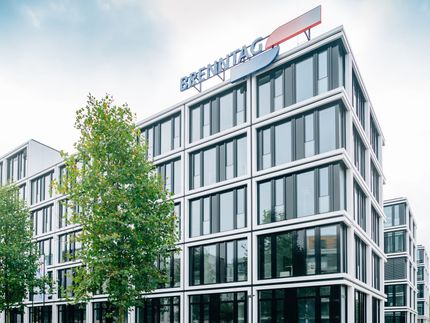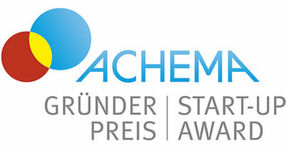Bayer Group: First-quarter performance as expected
“We’re consolidating roles, designing teams for more impact, and taking out layers”
Advertisement
The Bayer Group performed as expected in the opening months of the year. “First-quarter sales declined slightly versus the prior year. The Pharmaceuticals Division saw gains in growth and profitability, and the Crop Science Division outperformed in a difficult market. Consumer Health started slower, but is set to get back to growth over the course of the year,” CEO Bill Anderson said on Tuesday when presenting the company’s quarterly statement for the first quarter. He reaffirmed Bayer’s outlook for 2024 at constant currencies. Anderson also commented on the company’s strategic priorities. “In March, I highlighted four areas we’re focused on to get Bayer back on track. Two months later, we’ve made progress in each one,” he said, referring to growth and innovation, the US litigation, cash and deleveraging, and the new Dynamic Shared Ownership (DSO) operating model. Regarding the implementation of DSO, Bayer’s CEO explained: “We’re consolidating roles, designing teams for more impact, and taking out layers. The most important measure of our impact will be much greater than a job number or a cost savings target. It will be in our ability to innovate, grow our businesses, and improve life for our customers.”
Group sales came in at 13.765 billion euros in the first quarter of 2024, and were therefore slightly below the prior-year figure on a currency- and portfolio-adjusted basis (Fx & portfolio adj. minus 0.6 percent). There was a negative currency effect of 525 million euros (Q1 2023: positive currency effect of 102 million euros). EBITDA before special items decreased by 1.3 percent to 4.412 billion euros. EBIT advanced by 4.0 percent to 3.092 billion euros after net special charges of 207 million euros (Q1 2023: 431 million euros). The special charges primarily related to expenses for ongoing restructuring measures and affected all divisions and functional areas. Net income fell by 8.2 percent to 2.0 billion euros, while core earnings per share decreased by 4.4 percent to 2.82 euros.
Free cash flow came in at minus 2.626 billion euros (Q1 2023: minus 4.102 billion euros), mainly due to the improvement in operating cash flow. Net financial debt as of March 31, 2024, came in at 37.488 billion euros, up 8.7 percent from year-end 2023. This was mainly attributable to cash outflows from operating activities due to seasonal factors.
Crop Science outperforms peers in terms of sales trajectory in a challenging market environment
In the agricultural business (Crop Science), Bayer outperformed its peers in a difficult market. Sales declined by 3.0 percent (Fx & portfolio adj.) to 7.907 billion euros, mainly due to lower volumes for non-glyphosate-based herbicides and the Fungicides business in Europe/Middle East/Africa. With respect to glyphosate-based products, the division recorded significant market-driven price declines in all regions that were not fully offset by the strong volume recovery. The strategic business entities Herbicides and Fungicides saw sales fall by 13.3 percent and 8.5 percent (Fx & portfolio adj.), respectively. Sales at Soybean Seed & Traits were level with the prior-year period (Fx & portfolio adj.). Business at Corn Seed & Traits was up by 2.0 percent (Fx & portfolio adj.) thanks to higher prices in all regions, while sales at Insecticides advanced 2.3 percent (Fx & portfolio adj.), driven by increased volumes in Europe/Middle East/Africa and North America.
EBITDA before special items at Crop Science declined by 12.8 percent to 2.849 billion euros, mainly due to price declines for glyphosate-based products. There was also a negative currency effect of 92 million euros (Q1 2023: positive currency effect of 54 million euros).
Business up at Pharmaceuticals thanks mainly to new products
Sales of prescription medicines (Pharmaceuticals) increased by 3.9 percent (Fx & portfolio adj.) to 4.358 billion euros. The division’s new products Nubeqa™, a cancer drug, and Kerendia™, for the treatment of patients with chronic kidney disease associated with type 2 diabetes, both saw sales advance by around two-thirds (Fx & portfolio adj.). In addition, sales of the ophthalmology drug Eylea™ were up 3.4 percent (Fx & portfolio adj.) thanks to higher volumes and prices. The Radiology business also posted gains, with the CT Fluid Delivery and Ultravist™ product families both registering growth of around 10 percent (Fx & portfolio adj.). Despite being held back by competitive pressure from generic products, as expected, sales of the oral anticoagulant Xarelto™ were also up, rising 1.7 percent (Fx & portfolio adj.). By contrast, negative developments for the division included a decline in Adalat™ sales due to tender procedures in China. On a global level, sales of the cardiovascular drug decreased by 23.0 percent (Fx & portfolio adj.).
EBITDA before special items at Pharmaceuticals rose by 8.0 percent to 1.194 billion euros. Higher R&D investments for cell and gene therapy and chemoproteomics technologies were offset by lower expenses for projects in advanced clinical development. The division also managed to reduce costs relating to its sales activities. There was a negative currency effect of 127 million euros (Q1 2023: negative currency effect of 6 million euros).
Consumer Health largely able to balance shifting demand with pricing
Sales of self-care products (Consumer Health) decreased by 1.8 percent (Fx & portfolio adj.) to 1.432 billion euros. The division experienced reduced customer demand following a strong previous quarter in which inventories were replenished due to an improved supply situation. Additionally, US retailers optimized inventory levels across the industry. However, strategic pricing largely offset the decline in volumes. Business in the Allergy & Cold category was down 16.8 percent (Fx & portfolio adj.) due to a weaker cold season and mild winter, while sales at Nutritionals were level year on year (Fx & portfolio adj.). By contrast, business was up 9.0 percent (Fx & portfolio adj.) at Digestive Health amid an improved supply situation. Growth in Europe, where the division as a whole reported higher sales, was mainly driven by Iberogast™ and Rennie™. Business was also up in the Dermatology category, where sales rose by 7.3 percent (Fx & portfolio adj.) thanks largely to Bepanthen™ Derma and strong demand for regional brands in China.
EBITDA before special items at Consumer Health decreased by 12.7 percent to 331 million euros, mainly due to negative currency effects of 46 million euros (Q1 2023: negative currency effects of 4 million euros). The division was largely able to offset the decline in sales, an inflation-driven rise in costs, and higher investments in marketing innovative products thanks to its continuous cost and price management efforts. It also generated higher income from the sale of minor, non-strategic brands.
Currency-adjusted outlook confirmed
Bayer has confirmed its currency-adjusted forecast for full-year 2024 (i.e. based on the average monthly exchange rates in 2023). However, the negative impact from anticipated currency effects has increased based on the closing rates as of March 31, 2024. Applying the rates on that closing date instead of December 31, 2023, leads to a reduction in the forecast for EBITDA before special items from between 10.4 billion and 11.0 billion euros to between 10.2 billion and 10.8 billion euros, for example.
































































